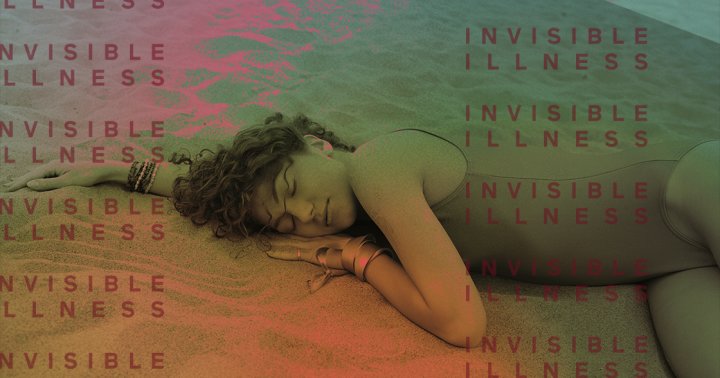The Rigpa of the Beatles
Jonathan Cott talks with actor Richard Gere about “Strawberry Fields Forever,” “Penny Lane,” and embracing the dramatic spectacle of ordinary mind. The post The Rigpa of the Beatles appeared first on Tricycle: The Buddhist Review.

John Lennon wrote “Strawberry Fields Forever” in Almería, Spain, in fall 1966, and in November, in response to that song, Paul McCartney wrote “Penny Lane” at his home in London. A culmination of what was one of the most life-altering and chaotic years in the Beatles’ career, these two songs composed the 1967 double A-side 45 rpm record that has often been called the greatest single in the history of popular music and was, according to Beatles producer George Martin, “the best record we ever made.”
In the following conversation, prolific music writer Jonathan Cott talks with actor Richard Gere about the Buddhist undertones of these two timeless rock ’n’ roll masterpieces.
*
I was wondering, Richard, if you’ve ever envisioned your own personal idea of Strawberry Fields. Yeah, I guess I’m looking for my version of Strawberry Fields. Freedom, openness, no hope or fear, saturated with love. With kindness. In Buddhist terms it’s called rigpa, the recognition of pure awareness with no subject or object to cling to. No narrative. No opinions, no choices, no decision-making, no labels, it’s just awareness—it’s not a me that is aware of being aware, it’s just awareness itself, and it’s this pure, wide open, unreferenced point of awareness—mind essence, which in terms of language is about as close as you can get to God. So that would be the pinnacle, the mountain peak of the idea of a beautiful place to me, but in that realm there’s not even a difference between beautiful and ugly, good and bad, up and down. So my idea of Strawberry Fields wouldn’t be literal, it would just be freedom. Clarity. Knowing. Being liberated from concepts that constrict me from the vast openness of love. But still I long for the here-and-now love in my wife’s eyes, my children’s laughter, childhood memories of summers on Cayuga Lake with my family, the kindness of my teachers, my father singing the old songs.
I’ve been told that in Buddhism, one speaks about the clear light nature of mind. Does this have something to do with rigpa? Yes, that’s rigpa. Actually it’s the recognition of the clear light nature of mind. Not strawberries or strawberry fields that go on forever. It’s freedom, it’s not just another heavenly realm where everything’s OK and nice and like a picnic or a little vacation. If it just means a pleasure place where you’re on a vacation in samsara and where nobody’s going to hassle or hurt you and where there’s nothing to get hung about, it doesn’t mean you’ve been released from samsara [the endless cycle of birth, death, and rebirth]. Peace and happiness isn’t the goal. It’s pretty good, but you can get stuck there because it feels so good. That’s not liberation. It’s not bad, but it’s not the ultimate thing.
Strawberries rot if you don’t eat them, and fields go through different seasons, so it’s a kind of childish notion that it will always be there forever. It’s a child’s view of the universe. In the nature of reality nothing can last forever, other than the clear light nature of mind itself, which is of a completely different order of experience than happiness or unhappiness. And sure, you’d rather be in a happy dream than one that scares us or one that makes us literally suffer or have the experience of suffering. But happiness and unhappiness are both projections of mind.
When I first interviewed John Lennon, he said to me: “Strawberry Fields is anywhere you want to go.” But of course Strawberry Fields is not a place you can go to, it’s a state of mind. I don’t think that John literally thinks, “Oh, if only I could, I’d get a ticket and get on a train and go to Strawberry Fields.” But, sure, he wants to go back to the Strawberry Field orphanage grounds where things weren’t so complicated and where he had fun playing with his friends.
Many children have a cherished playroom or a special tree or whatever. For me, when I was young, I experienced that kind of Strawberry Fields lying in my backyard at night, my back on the ground, feeling the solidness of the earth, and smelling the wet grass around me, and looking up at the stars. And I didn’t find that dark, I found that the night was dark, but I found it filled with light and possibility. John was playing with his friends in Strawberry Field, and I was lying in my suburban backyard looking up at the stars.
But it’s not like that’s the end—it’s just the merest taste of the vastness. It’s not ultimately going to take you to clear light. As an analogy, yes. But the way out of suffering is to abandon all conceptual thinking, the conceptual part of the brain that says, “I want Strawberry Fields, but I don’t want hell,” because this presupposes that there’s a Strawberry Fields and that there’s a hell, but it doesn’t acknowledge that the mind itself is making both Strawberry Fields and hell. The real liberation, we’re told, is when you realize that there’s no difference between Strawberry Fields and hell. It’s the conceptualizing itself that’s holding us back from our innate magnificence.
I think that John is trying to work toward that understanding and to find out what layers he has to go through to get there. He’s going down and back into his memory, back down into stuff that was difficult, and Strawberry Field was the one place where he felt good. So there’s a 26-year-old John Lennon who’s going with his memory and emotional self down and back—he’s acknowledging both—and is sharing it with us.
The 4th-century Christian bishop Gregory of Nyssa once said something quite remarkable. “Concepts,” he declared, “create idols; only wonder can grasp anything.” I love that. The wonder that’s the embrace of mystery. The not-knowing. Some people mistrust the mystery, but I choose to think that we’re all participants in an adventure of mysteries. Mirrors within mirrors within mirrors. It’s a spectacle, and it’s OK for it to be a spectacle, but it’s the attachment to any part of that emerging and creative spectacle that gives us hope and fear: “Can I hold on to that—I’m fearful that I can’t.” So because of the way humans are constituted and the way our brains associate, we live in snapshots. We take a snapshot of the illusion of us right now, and then that lingers because it has an afterlife. An afterglow. We don’t continually take new snapshots as everything is changing—sometimes slowly, sometimes quickly—although everything is in a state of breaking down and changing.
“The real liberation, we’re told, is when you realize that there’s no difference between Strawberry Fields and hell.”
We live within a snapshot as long as we possibly can, and then circumstances become so dramatic that we realize we’re in a different place now. So we have a new snapshot, and then we live in that snapshot for a while, so we’re never really directly in reality, we’re living in a snapshot of conceptual projecting mind, grasping on to the surface of things. But the Great Ones have let that go—there are no expectations, no making choices in the sense that we normally make choices, it’s just being in flow, just being there with impeccable motivation and a sense of humor.
The French film director Jean-Luc Godard famously declared: “The cinema is truth twenty-four frames per second.” The Tibetans would say it’s more like 365 times per second! Apparently, there are yogis who can be conscious of 365 separate events within a second. We’re just kind of stuck … floating in these isolated snapshots. Movies look so good because they’re twenty four times a second where you get zapped with a new still—pom-pom-pom! You’re being hit with that, and the brain is delighted.
“Roll away the reel world, the reel world, the reel world!” wrote James Joyce. I think that actors can be aware of the ephemeral nature of emotions because we make them, we conjure them, that’s our job, we know they can be manufactured or coaxed into being. They appear to be real, but the world of the movie is conjured. Edited. Manipulated. It’s not unfolding as it is, it was constructed in pieces. We’re just not aware of it. The same in our normal waking life—we’re constructing it just the same way an actor, an editor, and a director are constructing a movie experience. So all of this conceptuality, these narratives, these movies become a playground, a spectacle. It’s a playground, a spectacle, it’s the mind playing with itself. Entertaining itself in illusion.
One of my teachers, Nyoshul Khen Rinpoche, once told me: “I have friends who like to watch movies and TV and go to plays,” and he added, “I don’t really understand that—I just watch my mind. What a spectacle!” So at Rinpoche’s level there’s no attachment to it. You watch the spectacle of the universe doing its dance, its movie projection … one movie after another. Endlessly.
When the Beatles were recording “Strawberry Fields,” John told the producer George Martin that he wanted the sound of the song to be “heavier.” But when they were working on “Penny Lane,” Paul said that he wanted that song to have “a clean American sound,” and after you’ve listened to the “Strawberry Fields Forever” side of the 45 single and turn it over, you’re in a radically different sonic realm. Yes, you get the feeling that you’re looking up at blue skies. I think it’s a brilliant song, and I like it better all the time. Do you know the painting called The Street by Balthus [the Polish-French 20th-century artist]? It shows a town square, and all of these people are on the street doing all kinds of different things. [A cook strolls on the sidewalk, a carpenter carries a plank across the street, a girl plays with a racquet and ball, a mother in an apron carries a child in a sailor suit, and a boy walks stiffly like a bandleader.] They’re like vignettes, and it somehow reminds me of the mood of “Penny Lane.”
And when I listen to that song, I’m getting the feeling of Paul sitting on a park bench, and it’s a beautiful day, his eyes are seeing things and his mind is drifting, and life is being filtered like light through the trees, there’s nothing to get hung about, there’s a comfort level of being just fine watching the spectacle. He doesn’t have to go to a dark place. Some things are strange, but that’s OK. A barber is showing photographs of his customers, a pretty nurse is selling poppies, a fireman is holding an hourglass and then rushes into the barber’s from the pouring rain. But up until then there’s been a clear blue suburban sky. It’s kind of like a daydream.
A student asks a Buddhist teacher, “What is the Way?” and the teacher replies: “Ordinary Mind is the Way.” And the Japanese Rinzai monk Sokei-an wrote: “He who truly attains awakening knows that deliverance is to be found right where he is. He lives his daily life in awakened awareness. His every act from morning to night is his religion.” “Penny Lane” seems to me to be a kind of Buddhist song. It’s like a Zen koan. How can you achieve enlightenment driving your car? And the answer is: “By driving your car.” If you’re actually driving your car in awareness, that’s pretty close to what we’re talking about here.
Keeping your eye on the road. Yes, you’re in the world, a world that you’ve ultimately created. This movie out here that I seem to be walking through is my movie that I’m writing and directing. We walk through the world that we think belongs to the world and that exists without us, and we think that if we remove ourselves, the world is still there—but that’s impossible.
I wanted to ask you about the way John and Paul view the spectacle of life. John’s looking for Strawberry Fields. Paul is in Penny Lane.
It’s in his ears and in his eyes. He’s there, and he’s seeing the simple beauty of the spectacle of life. The utter ordinariness of the mystery. Again, there’s a great humility in this, and a sense of equality. None of these experiences Paul talks about here are good or bad, no “this one’s better than that.” He’s not complaining, he’s not making judgments, he just has a sense of the delight of the world.
The French anthropologist Claude Lévi-Strauss remarked that “the secret of the world is hidden in the world.” And I feel the same way. You know those hidden pockets in New York City where you can sit on a bench and hopefully you’re under a tree and everyone’s outside and things and people are moving—that one is having a drama, this one is walking a dog, that person is kissing another person, this one is crying, that one has an ice cream cone. It’s the delight of the spectacle of life. To appreciate the life force as it’s moving through awareness without judging it—Paul’s only comment on it is “very strange.” He doesn’t say, That scares me, or I want to change that and make it less strange. And then there are those beautiful lines:
“Behind the shelter in the middle of a roundabout
A pretty nurse is selling poppies from a tray
And though she feels as if she’s in a play
She is anyway”
She’s in the spectacle, but whatever she thinks conceptually about it, she is anyway. It’s a deep observation and reveals a deep understanding and acceptance of his observations. She’s aware that she’s in a nurse’s uniform—a costume—with poppies on a tray, and you iris out and see that the whole thing is a play. It’s like that Balthus painting of walking, strolling, strutting people. It’s this proscenium that’s being projected. This idea of being in a play. It’s like Paul’s got a notebook out and he’s just sitting there and watching all this stuff, and it’s a play, just like in the Balthus painting. It’s a play of movement and personality, and he’s watching it. He doesn’t say it’s bad, he doesn’t say I don’t want it to happen. It’s just a bit odd. How bizarre. What a spectacle! And I get a great source of comfort from this song—you don’t have to push the river, it’s OK, just jump in the stream. It’s all right.
♦
This article was excerpted and adapted from the book Let Me Take You Down: Penny Lane and Strawberry Fields Forever by Jonathan Cott. Published in arrangement with the University of Minnesota Press. © Jonathan Cott

 Lynk
Lynk 

































